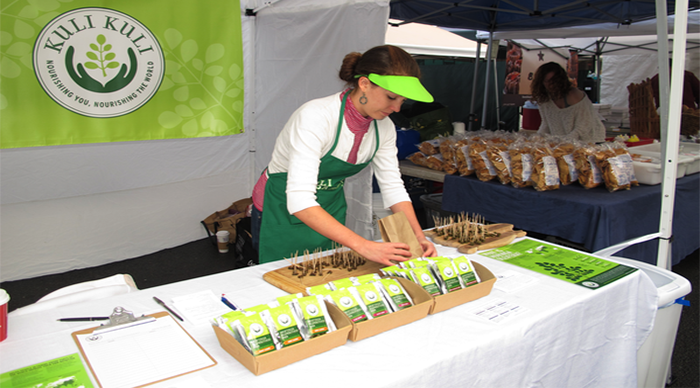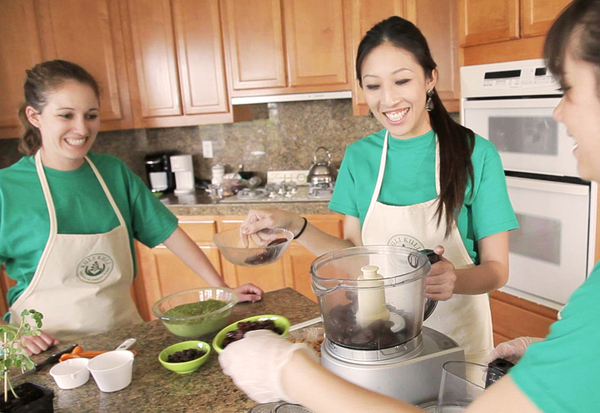Guest Author Lisa Curtis began work on the successful Kuli Kuli campaign while in the Peace Corps in Niger, West Africa. Kuli Kuli is the first company to sell moringa food products in the US market.
When I ran an Indiegogo campaign for Kuli Kuli last May, we had zero money, no full-time staff and a network of mostly other broke 20-somethings. Yet within a day of launching our campaign, we’d raised $22,000. We ultimately went on to raise $53,000 from 800 people, most of whom we’d never met.
Prior to our Indiegogo campaign, even my close family and friends didn’t know what I was doing. My own father still couldn’t pronounce the name of the plant we were trying to make the next big superfood (for reference, it’s moringa – MO-ring-GA).
The success of our campaign landed us on the front page of major papers and enticed Whole Foods to pick up our first moringa product, a nutritional bar, before we’d even finished manufacturing it. Our email list grew from zero to nearly 2,000, and our social media flourished.
In essence, Kuli Kuli wouldn’t exist without our Indiegogo campaign. And we’re certainly not the only ones.
I’m a strong believer in the power of democratized financing. I believe that if more businesses were created by the crowd, they’d be more likely to succeed and have a positive impact on the world.
By already having hundreds or thousands of customers before they manufacture, many product-focused businesses find that crowdfunding puts them on the path to success in a way a bank loan never could. Similarly, these businesses now have a responsibility to their first “backers” to do something meaningful with that money — making them more likely to conduct their business in a socially responsible manner.
Crowdfunded businesses are also more likely to be run by women or minorities – two demographics that on average receive half as much business funding as white men. This diversity also contributes to their success, with Kauffmman estimating that women entrepreneurs bring in 20% more revenue with 50% less money invested.
In essence, crowdfunding is good for the world.
This is why I’m so excited that recent changes in legislation are making it easier for businesses to crowdfund not just donations, but investments. As of last August, businesses can now publicly advertise that they’re raising capital, provided that that capital only comes from high net worth investors.
Crowdfunding is bringing the people power back to fundraising, proving that even non-traditional entrepreneurs without wealthy networks can still find a way to finance their dreams. And that’s a development I support fully.
For more information, take a look at this recent Fast Company article detailing our story, or visit Kuli Kuli’s website to see what we’re up to now!
5 Responses
You must be logged in to post a comment.





Vie d’une personne peut être indifférent dans le visage, et à saisir activement lorsque vous Kanbu Kai, vous êtes trop fier, vous êtes en colère, quand vous êtes dans la douleur profonde, de penser, de toute façon, vous avez toujours heureusement Dangdang cette vie
https://www.trustmontrefr.com
https://www.trustmontrefr.com/audemars-piguet-nouveaux-produits-c-4_6.html
Can’t wait to try it! Great job Girls!
Way to go Lisa!
see also moringaconnect.com and globalmoringa.com.
I am very interested in understanding the how this campaign is impacting Social Change and if so how would the success of this effort be shared by the people of Niger?